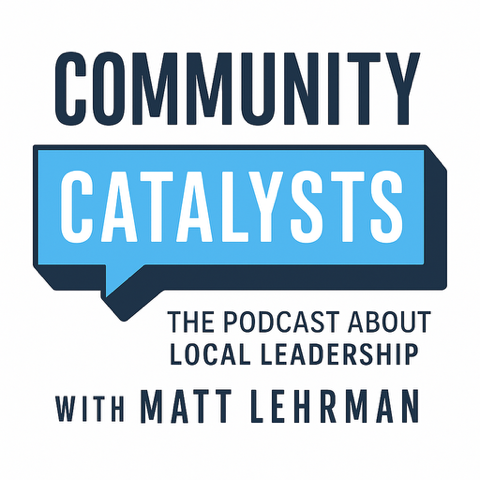Mired in Dysfunction? Here Are 5 Ways Out
By Kerry Stewart Lengel
Special Contributor
“All politics is local” is a nearly century-old axiom in America. But today, hyperpartisanship at the national level is spreading division and dysfunction to local governing boards across the country.
That was the bad news from a virtual roundtable of elected officials and other community leaders in more than a dozen states, hosted on Jan. 5 by Social Prosperity Partners and facilitated by strategic planning expert Matt Lehrman.
The good news? Not everybody was feeling “frustrated and ignored” — and they offered moral support as well as practical ideas for colleagues looking for ways to promote inclusivity and collaboration.
“Sometimes you find connections with people in ways you never thought you would.”
Highlights from our Jan. 5 Community Chat on “Governance vs. Politics”New Paragraph
Register for our next Community Chat
Our topic on Feb. 2 is “Putting Fear in Its Place,” in which we’ll explore the balance between aspiration and fear as drivers of policy in local government. Matt Lehrman facilitates a virtual roundtable for community leaders on the first Friday of every month (10 a.m. Pacific/1 p.m. Eastern). Free to join, but space is limited, so early registration is encouraged (HERE).
NATIONAL PARTISANSHIP FUELS LOCAL DYSFUNCTION
“We just had an election in November, and the campaign was about who was a Democrat and who was a Republican,” said Rap Hankins, former member of the officially nonpartisan City Council in Trotwood, Ohio.
“It was more about politics than it was about policy, and I’d argue if we didn’t have a city manager’s form of government, it would be chaos in our city.”
Jessica Elston, president of “a strong, healthy school board” in Plainfield, Indiana, said she opposed a movement in the state legislature to make school board elections partisan. “It did not pass in this last session, but I know we’ll see it again,” she said.
Alisa Benson, first-term City Council member in Orono, Minnesota, said she has struggled at times to ignore partisan and personal attacks.
“I’ve had to consciously and continually pull myself away from conversations that residents wanted to engage in sometimes that put social issues or issues on the national scene into our city,” she said.
“I campaigned on civility, and it’s something that I think about all the time. It’s not what the public wants. They don’t want to see dysfunction. Personal attacks are a distraction from issues, and I think that’s effective sometimes, but it’s not a game I want to play.”
NO, THE ‘CHAOS’ ISN’T EVERYWHERE
One chat participant went so far as to call their City Council experience “abusive,” but others had hopeful stories to share, including the Reverend Audrey Hartness Reese, a Presbyterian pastor and City Council member in deep-red Westminster, South Carolina.
“I called and talked to the mayor, who’s a good friend of mine, and I said very candidly, ‘I’m a Democrat,’” Reese recalls, “and his response was, ‘Well, that doesn’t matter when we’re sitting at the table.’ And I really didn’t believe him, but I will say that when we have decisions that are very clearly divisive, we don’t have the animosity that I feel like is sounding more prevalent. It’s a pleasant surprise, because it’s not what I expected in my small Southern town.”
Kwame Kamau James, an African American school board member in Muskegon, Michigan, credited the current board president, who is white, for working to mend racial fences in the majority-black district. “There has been a really concerted effort to work towards some harmony and some team spirit, and it is happening,” he said.
SOMETIMES, THE WAY FORWARD IS … SIDEWAYS
For community leaders struggling with institutional conflict, colleagues offered empathy as well as practical advice.
“They say the people who need to go to therapy don’t go,” said Kitty Moore, a City Council member in Cupertino, California, pointing out that there will always be some officials who care more about scoring political points than solving community problems.
For such situations, roundtable participants had these suggestions:
1. Don’t ignore the problem
In an effort to improve communication on his Michigan school board, James said, “we’ve been very pointed about verbalizing, articulating the harm as it’s being done” when someone engages in personal attacks or other uncivil behavior.
2. Get outside the boardroom or council chambers
Organized retreats can help improve communication for groups mired in conflict, Elston said. “Not only do we learn a lot, but it gives us a chance to talk to each other on a non–subject matter basis. It’s shared events, going out and having dinner together. You start to learn about these people as human beings. What are their interests? What do you have in common? Sometimes you find connections with people in ways you never thought you would.”
3. Bring more voices into the conversation
“I’m sorry that you’re serving on divisive councils,” Reese told colleagues, “because while I don’t know what it’s like to serve on one, I definitely know what it looks like to sit in the audience of one, and it is unpleasant. Hopefully there are ways that you can find some common ground with community members and maybe bring them into the conversation.”
4. Plug in to state, regional and national networks
“It’s always important to have different input instead of just living in your bubble,” said Hankins, who recommends attending conferences held by the National League of Cities as well as state municipal leagues. Added James: “I found a lot of support from the Michigan Association of School Boards, just with training and the opportunity to dialogue with other school board members from across the state, who do face similar issues.”
5. Focus on core values
“When you think about governance and politics, there’s a very thin line,” said Anne Fischhaber of the Eden Valley City Council in Minnesota. “I come at it from this point of view — and this is something I’m planning to work on — start by what we value, and how we plan to work for the community. If residents value certain things and care about them, how do we come to an understanding where we can sometimes do both, or compromise? I’m trying to figure out how to navigate those spaces for the good of the community. And I think that’s why we are all here today. We want to learn from each other and see how we can be better, we can do better.”
About the writer: Kerry Stewart Lengel is a media strategist and independent producer specializing in politics, culture and the arts.
Connect with Matt:
- Email me at Matt@SocialProsperity.us.
- Follow me on Facebook, Instagram and LinkedIn.
- Learn more at SocialProsperity.us and MattLehrman.com.



